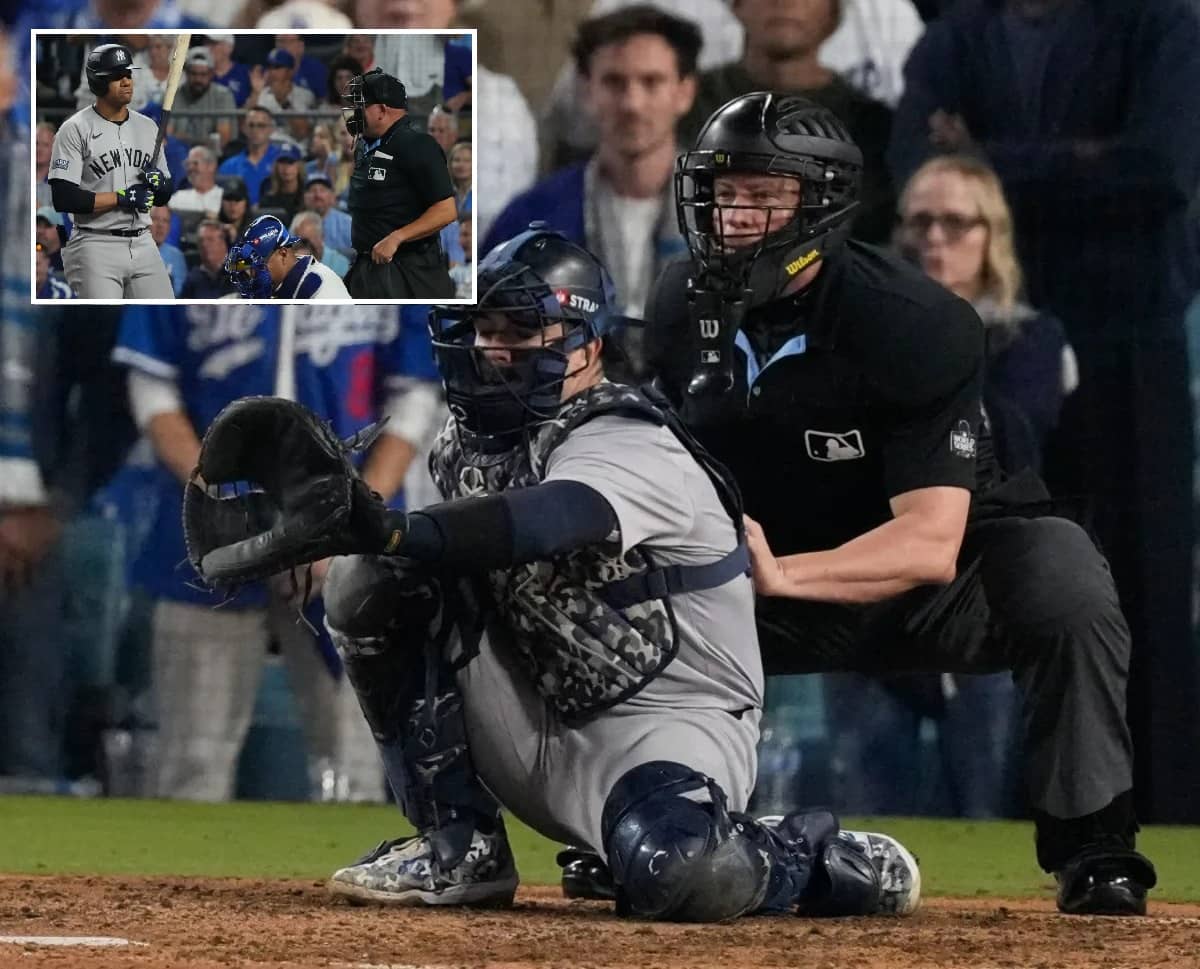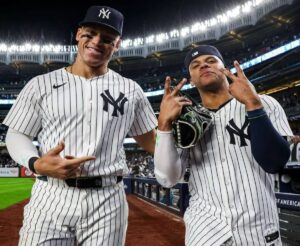Strike zone chaos caused by bad calls mars Yankees-Dodgers opener


Inna Zeyger
More Stories By Inna Zeyger
- Mother’s Day: How Anthony Volpe’s mom molded him into a Yankee phenom
- Blake Snell to Yankees? Weighing the pitching powerhouse’s worth in the Bronx
- Aaron Judge refutes interference in Yankees’ offer of bigger AAV to Juan Soto
- Yankees, Grisham agree on one-year extension for $5M plus incentives
- Yankees keen to sign Buehler, who won 2024 championship with Dodgers
Table of Contents
Controversy erupted from the first inning of the World Series opener between the New York Yankees and Los Angeles Dodgers, as home plate umpire Carlos Torres’ strike zone decisions came under immediate scrutiny.
The questionable calls began during a crucial first-inning at-bat by the Yankees’ Jazz Chisholm. With two runners on base and two outs, Torres ruled a pitch that appeared both outside and low as a strike on a check-swing attempt. The contested call shifted the at-bat’s momentum, and Chisholm grounded out on the following pitch in a similar location, ending the Yankees’ early scoring threat.
— Sly Cooper (@SlyCooperBurner) October 26, 2024
The second ump error in the Yankees-Dodgers clash
The inconsistency continued into the second inning, this time affecting the Yankees’ defense. Gerrit Cole‘s 98-mph fastball, which Fox broadcast graphics showed clearly catching the outside corner, was called a ball during Will Smith’s at-bat. The decision visibly frustrated both Cole and his battery mate, Austin Wells.
ball. strike. pic.twitter.com/BLvXeGwkQV
— Jomboy (@Jomboy_) October 26, 2024
The inconsistency became particularly glaring in the second inning when Torres called consecutive pitches from Yankees’ ace Gerrit Cole in nearly identical locations differently — first as a ball, then as a strike. The situation escalated in the third inning when Torres ruled a strike on a pitch to Juan Soto that appeared to miss the zone by several inches.
The controversial calls added another layer of tension to an already high-stakes opener, highlighting ongoing debates about umpiring consistency in baseball’s premier event. Major League Baseball has been exploring automated strike zones, and games like this may add fuel to those discussions.
These early disputed calls set a contentious tone for what promised to be a closely contested series between two of baseball’s most storied franchises.
The last straw
Former Major League player Eric Hosmer voiced strong criticism on social media, questioning Torres’ qualifications for such a prestigious assignment. Hosmer emphasized the significance of count leverage, particularly against a disciplined hitter like Soto, noting how a 0-1 count versus 1-0 can dramatically alter an at-bat.
— Sly Cooper (@SlyCooperBurner) October 26, 2024
“This is [too] high level of a game for Carlos Torres to be working the plate, let alone working. He’s an awful umpire, he’s terrible to work with and hasn’t earned anything,” Hosmer wrote on X.
“Can’t keep missing these pitches. 0-1 versus 1-0 huge difference let alone with a guy like Juan Soto at the plate. It’s [too] long of a road for these teams to get here, [too] much on the line and we can’t have it.”
The veteran first baseman highlighted the stakes involved, pointing out that both teams’ long journey to reach the World Series deserved better officiating standards. His comments reflected growing frustration with the impact of questionable calls in baseball’s premier event.
The controversy adds to ongoing discussions about umpiring consistency and the potential implementation of automated strike zones in Major League Baseball, particularly in high-stakes situations like the Yankees vs. Dodgers World Series.
What do you think? Leave your comment below.
- Categories: gerrit cole, Juan Soto, World Series, yankees vs. dodgers
- Tags: gerrit cole, Juan Soto, World Series, yankees vs. dodgers
Related posts:


 Follow Us
Follow Us








